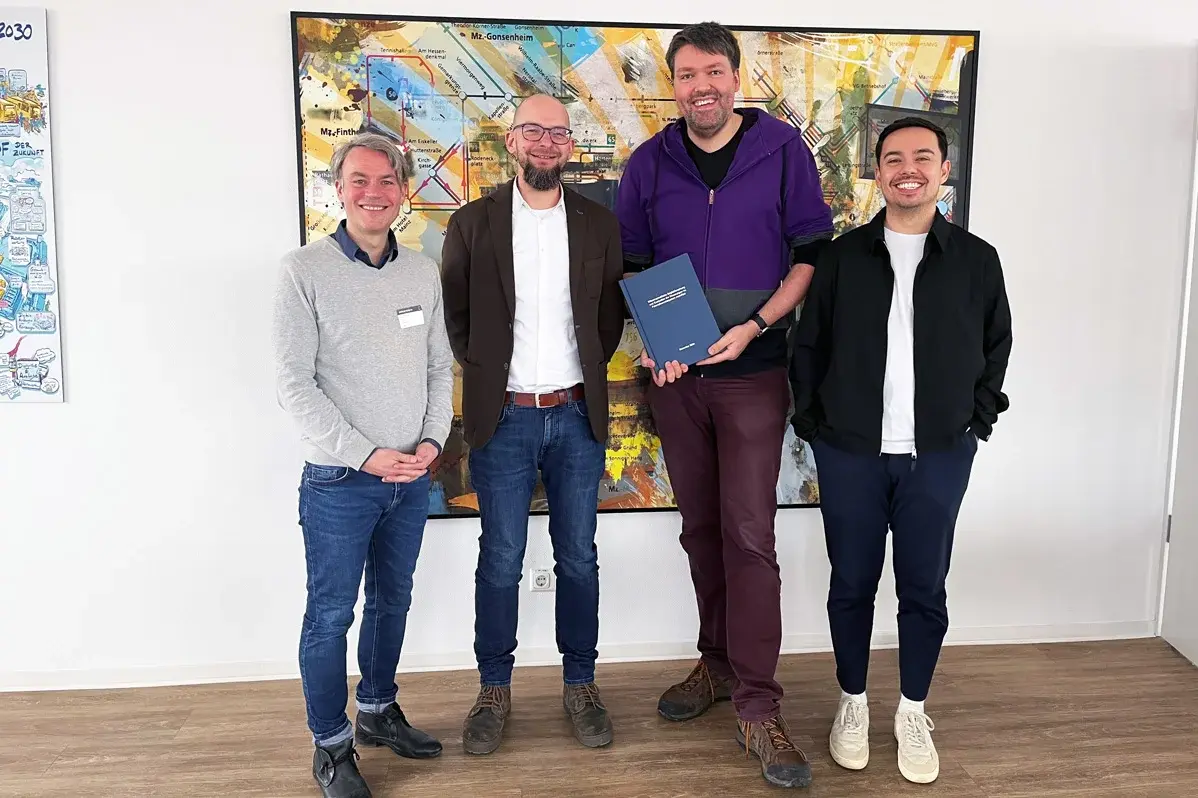As part of the project, developments and innovations within the meinRad system were examined using a variety of methods.
Higher education institution as a partner for innovation
"With the study of the meinRad system, we have now been able to evaluate the third rental bike system and show how practical research can contribute directly to the improvement of publicly funded mobility services," explains Dr. Sebastian L. Grüner, head of the project and PostDoc in the Mobility Management department at Hochschule RheinMain. "Our analyses illustrate both the usefulness of bicycle rental systems and the need for innovation in order to make them even more attractive."
The scientific support of the "meinRad 2.0" project with Mainzer Mobilität made it possible to examine usage patterns of rental bike customers in detail and develop targeted suggestions for improvement.
Successful modernization and increasing use
The meinRad system has been extensively modernized since 2020. In addition to the introduction of a new IT infrastructure and IoT-enabled bike locks, e-cargo bikes and pedelecs have been added to the range. Research shows a continuous increase in rental transactions, which is not least due to consistent system improvements. "The integration of pedelecs and e-cargo bikes is perceived as a clear added value. Users can flexibly meet different needs and, in combination with other public transport services, do without their own car," summarizes Christina Rutka, who also interviewed non-rental bike users as part of the evaluation. "Pedelecs and e-cargo bikes are an attractive and decisive alternative, especially for longer, hilly routes or for transporting shopping or children."
Optimization potential and challenges
The accompanying research also highlighted existing challenges. Improvements were identified that could make the offer more attractive, particularly for non-rental bike users, such as the expansion of the system, targeted information campaigns and greater availability. "The findings help us to design public mobility services that are even more tailored and 'from a single source' and to overcome previous inhibitions," emphasizes Dr. Volker Blees, Professor of Transport at Hochschule RheinMain.
Hochschule RheinMain will use the knowledge gained to conduct further research on the topics of sharing and mobility behavior. "Our goal is to support projects or initiatives in the field of mobility with our expertise and provide scientific support in order to make a measurable contribution to understanding mobility behavior," summarizes Dr. Grüner.
